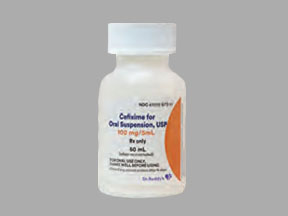
Suprax Coupons & Savings Card – Discount Prices from $47.58
Brand for: Cefixime
My prescription
Edit
50ML of 100MG/5ML, Cefixime (1 Bottle)
Select pharmacy

CVS
$68.65
COUPON PRICE
Albertsons
$47.58
COUPON PRICE
Walgreens
$56.35
COUPON PRICE
Walmart
$173.18
COUPON PRICESuprax savings card
Show this card to your pharmacist
Albertsons
$47.58
BIN
ID
PCN
GRP
019876
LH8DCF428E
CHIPPO
LHX
Powered by
Related cephalosporin antibiotics prescriptions
More prescriptions for urinary tract infection
Related cephalosporin antibiotics prescriptions
More prescriptions for urinary tract infection
Suprax (Cefixime) dosage forms
Dosage Quantity Price from Per unit 50ML of 100MG/5ML 1 Bottle $47.58 $47.58 50ML of 100MG/5ML 2 Bottles $87.67 $43.84 50ML of 100MG/5ML 3 Bottles $127.75 $42.58
| Dosage | Quantity | Price from | Per unit |
|---|---|---|---|
| 50ML of 100MG/5ML | 1 Bottle | $47.58 | $47.58 |
| 50ML of 100MG/5ML | 2 Bottles | $87.67 | $43.84 |
| 50ML of 100MG/5ML | 3 Bottles | $127.75 | $42.58 |
What is Suprax antibiotic used for?
Suprax, which contains the active ingredient cefixime, is an antibiotic used to treat a variety of bacterial infections. It is commonly prescribed for infections such as urinary tract infections, otitis media (middle ear infections), pharyngitis, tonsillitis, and bronchitis. It is also used to treat uncomplicated gonorrhea. As with any antibiotic, it is important to complete the full course of treatment as prescribed by a healthcare provider to ensure the infection is fully eradicated and to prevent antibiotic resistance.
Is Suprax the same as Amoxicillin?
Suprax and Amoxicillin are not the same. Suprax is the brand name for cefixime, which is a cephalosporin antibiotic, while Amoxicillin is a penicillin-type antibiotic. They belong to different classes of antibiotics and may be used to treat different types of bacterial infections.
What is the difference between Suprax and Zithromax?
Suprax (cefixime) and Zithromax (azithromycin) are both antibiotics, but they belong to different classes. Suprax is a cephalosporin antibiotic, while Zithromax is a macrolide antibiotic. They are used to treat different types of bacterial infections and have different dosing regimens and potential side effects. The choice between them depends on the specific infection being treated and the patient's medical history.
Is Suprax a strong antibiotic?
Suprax, also known as cefixime, is considered a broad-spectrum antibiotic. It is effective against a variety of bacteria and is commonly used to treat infections such as urinary tract infections, respiratory tract infections, and certain types of ear infections. Its strength or effectiveness depends on the type of bacteria causing the infection and the specific condition being treated.
What infections does Suprax treat?
Suprax, which contains the active ingredient cefixime, is used to treat a variety of bacterial infections. It is commonly prescribed for infections such as urinary tract infections, otitis media (middle ear infections), pharyngitis and tonsillitis, bronchitis, and uncomplicated gonorrhea. It is important to note that Suprax is effective against specific types of bacteria, and its use should be based on the susceptibility of the bacteria involved in the infection.
